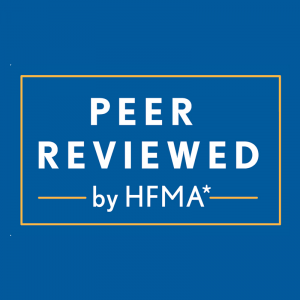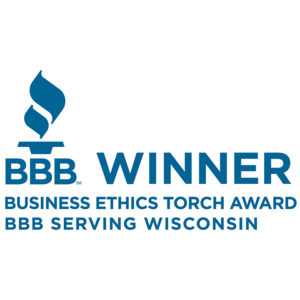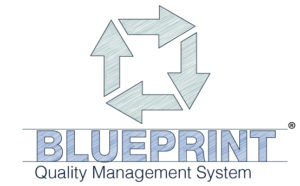Background
With passage of the new Affordable Care Act (ACA), new requirements were put on our nation’s hospitals non-profit hospitals. The ACA directed the Internal Revenue Service to establish Section 501r of the Internal Revenue Code. Hospitals must meet these new requirements in order to maintain federal charitable status.
What are the Section 501(r) Requirements?
Section 501 r establishes the following requirements:
- Financial Assistance Policy (FAP)
- Limitation on Charges for (FAP-eligible patients)
- Billing and Collection Policy
- Community Health Needs Assessment (CHNA)
This article will focus on the financial assistance policies and limitation on charges. In our next article, the focus will be on billing and collection policies.
Though final IRS regulations have not been issued, proposed regulations on financial assistance, limitations on charges, and billing/collection requirements were released in June of 2012. The IRS has stated that these proposed regulations may be relied on until final or temporary regulations are issued and published in the Federal Register.
Section 501r Notice of Proposed Rulemaking
The Department of Treasury, Internal Revenue Service (IRS) has issued the following Notices of Proposed Rulemaking:
- Additional Requirements for Charitable Hospitals (REG-130266-11), on June 26, 2012 (requirements relating to financial assistance and emergency medical care policies, charges for certain care provided to individuals eligible for financial assistance, and billing and collections)
- Community Health Needs Assessment for Charitable Hospitals, (REG-106499-12), on April 5, 2013 (requirements relating to the community health needs assessment (CHNA) requirements, and related excise tax and reporting obligations)
- IRS Notice 2014-2: Reliance on Proposed Regulations for Tax-exempt Hospitals, confirms that tax-exempt hospitals can rely on proposed regulations under section 501(r) noted above, pending publication of final regulations or other guidance
In the proposed CHNA rule issued on April 2013, the IRS stated that it intends to finalize the 2012 FAP regulations in conjunction with the finalizations of the proposed CHNA regulations. More than 200 comments were submitted on the FAP-related Notice of Proposed Rulemaking and a public hearing was held on this rule in late 2012. Approximately 100 comments were submitted on the CHNA Notice of Proposed Rulemaking which closed on July 5, 2013. While there is no clear timeframe for finalizing the Section 501r regulations, there is little doubt that most American non-profit hospitals hope the final rule will be issued soon, in order to further clarify the requirements.
For additional insight into the issues related to Section 501r and the community benefit expenses of hospitals, readers are encouraged to review the IRS Form 990 Schedule H. Schedule H is used by hospitals and health systems to report their community benefit expenses. It also includes questions on issues related to financial assistance, billing and collection.
What Are the New Requirements for Financial Assistance?
Hospitals must meet certain requirements in order to maintain their federal tax exemption. Outlined below are the major provisions related to the financial assistance policy and limitation on charges requirements. They are intended to improve transparency of the financial assistance policies intended to help financially needy patients.
More information on the Notice of Proposed Rulemaking, and related information, may be found on the IRS website.
Financial Assistance Policy
Level of Assistance and Eligibility
Written financial assistance policies must be established, describing the type of assistance provided under the policy. Policies should explain whether the assistance is free care, discounted care, or assistance targeted to medically indigent patients or those likely to suffer medical hardship due to extraordinarily high medical expenses. Policies are expected to describe the eligibility requirements for applicants and whether income and assets will be considered in making a determination. Neither the statute nor the proposed rules dictate specific eligibility or assistance terms. The specific terms are left to hospitals.
Applying for Assistance
Applicants must be informed of how and where to apply for financial assistance. The documentation requirements are to be clearly explained and no applicant is to be denied assistance base don omission of documentation not specified in the policy. Applicants are to be notified in writing of the eligibility determination.
Publicizing Policy
The proposed regulations call on hospitals to publicize information on their financial assistance policies. The financial assistance policy, an application form and a plain language summary are to be available free of charge. This information is to be posed on the hospital (or health system) website and available in hard copy format upon request. It is also expected that information on the FAP will be conspicuously posted in public locations throughout the hospital.
This information is to be made available in languages other than English if the primary language spoken by limited English proficient populations constitutes more than 10% of the population in the hospital service area.
Community residents are to be informed of the policy is a manner that is “reasonably calculated” to reach community members in need of assistance.
Emergency Medical Care
It is required that policies be established to ensure that care is provided, without discrimination, for emergency medical conditions (within EMTALA rules) for individuals regardless of whether they are eligible for financial assistance. The proposed rule prohibits actions such as demanding payment prior to delivering emergency services or permitting debt collection activities in the emergency department that could interfere with the delivery of emergency medical care or discriminate against patients eligible for financial assistance.
Limitation on Charges
The amounts generally billed (or more accurately, the amounts expected to be paid by the patient) by patients eligible for financial assistance are not to exceed the “amounts generally billed” insured patients. The policy must describe the method for determining the amounts generally billed FAP-eligible patients for emergency and other medically necessary care. The proposed regulations prohibit charging FAP-eligible patients gross charges.
The proposed rule described two methods for determining amounts generally billed. The rule states that once a hospital selects a method, it must continue to use the same method.
Look Back Method – Amount is based on actual past claims by:
a). Medicare fee-for-service and any deductible or copayments paid by the Medicare beneficiary, or
b). Medicare fee-for-service together with all private health insurers, as well as costs paid by Medicare beneficiaries or insured patients through deductibles, copayments or co-insurance.
Prospective Method – estimate the amount that would be paid by Medicare and the Medicare beneficiary for the emergency or medically necessary care.
It should be noted that Schedule H includes other methods for determining amounts generally billed; they include Medicare rates, the lowest negotiated commercial rate, the average of the lowest three negotiated commercial rates, and other.
Safe Harbor Provision
The proposed rule includes a “safe harbor” provision for certain charges made in excess of amounts generally billed. Hospitals will meet the proposed rule requirements if an eligible patient has not completed an FAP application and the hospital continues to make reasonable efforts to determine whether a patient is eligible for assistance. If a patient is later found to be eligible for assistance, any payment made in excess of amounts generally billed must be refunded.
Presumptive Eligibility Safeguard
Presumptive eligibility screening provides hospitals with an important safeguard regarding collection actions. It clearly shows that hospitals are proactively taking steps to qualify patients for assistance. The proposed rule requires hospitals using presumptive eligibility to extend the most generous level of financial assistance to those who qualify using this method.
Some hospitals realize that applicants receiving benefits under certain means-tested programs will also qualify for the hospital FAP since they share similar eligibility standards. Others go beyond this and utilize predictive analytics help identify accounts of financially needy patients who have not submitted applications for assistance. The use of predictive screening prior to sending an account to bad debt is a leading industry practice. It provides hospitals with an important safeguard which helps hospital avoid taking extraordinary collection actions against patients who might have qualified for the FAP, if they had applied. Accounts granted presumptive eligibility are categorized as financial assistance, not bad debt, and can therefore be claimed as financial assistance on Schedule H.
Formal Approval of Governance Board
After the policies have been designed and committed to writing, they must be approved by the hospital governing board or another body authorized to approve the policies by the governing body. The policies will be considered implemented when they are consistently carried out by the hospital.
Complying with the Section 501r Requirement
As noted above, hundreds of comments were submitted on the proposed Section 501r rules. Certain sections in the proposed rules were controversial and generated significant reaction from the industry. How the IRS chooses to respond will not be known until they issue the final rule.
But, even absent the final rule, it is clear that hospitals should have formal, written financial assistance and billing/collection policies. Between the guidance issued by the IRS and the information required to be reported on Schedule H, it should be clear to hospitals that certain elements must now be in place.
For hospitals to be tax-exempt under federal law, they must comply with these new Section 501r requirements. If your hospital has not reviewed and revised its policies, it should consider engaging in a comprehensive review of its financial assistance and billing/collection policies to ensure that they comply with Section 501r requirements. It may also consider an external review to provide the hospital with feedback on its policies and practices. Such feedback could be critical to ensure that policies and practices are clear, defensible, and that they comply with the requirements of Section 501r. Regardless of how your review is conducted, it is crucial that your hospital have policies in place that comply with these new requirements; remember, your federal tax-exemption depends on it.
Mark Rukavina, Principal of Community Health Advisors, LLC, holds an MBA from Babson College and a BS from the University of Massachusetts in Amherst. He has more than 25 years of experience working on healthcare issues. In his current capacity he provides assistance on issues related to financial assistance, billing and collection, and community benefit requirements for tax-exempt healthcare providers. Mark has testified before US Congressional committees, and has published research and policy briefs.
Prior to establishing Community Health Advisors, Mark served as Executive Director of The Access Project a national, non-profit, research and advocacy organization and before that served as Program Director for a hospital/community partnership in Massachusetts under a national demonstration program sponsored by the American Hospital Association’s Health Research and Educational Trust.
Mark recently served on the Healthcare Financial Management Association/ACA International Medical Debt Advisory Task Force and the Healthcare Financial Management Association’s Price Transparency Task Force.
About State Collection Service, Inc.
Since 1949, State Collection Service has provided quality collection service to countless healthcare organizations.
Through experience and innovation, State Collection Service has grown to become a tremendously credible and nationally-recognized collection agency offering services from pre-registration to bad debt. It is upon the basis of ethical behavior and a dedication to integrity that each State Collection Service employee works to uphold the company’s vision – Partnerships for a Lifetime.
*This article first appeared in “A State Collection Service, Inc. Newsletter Volume 20, Issue 2, Second Quarter 2014”















